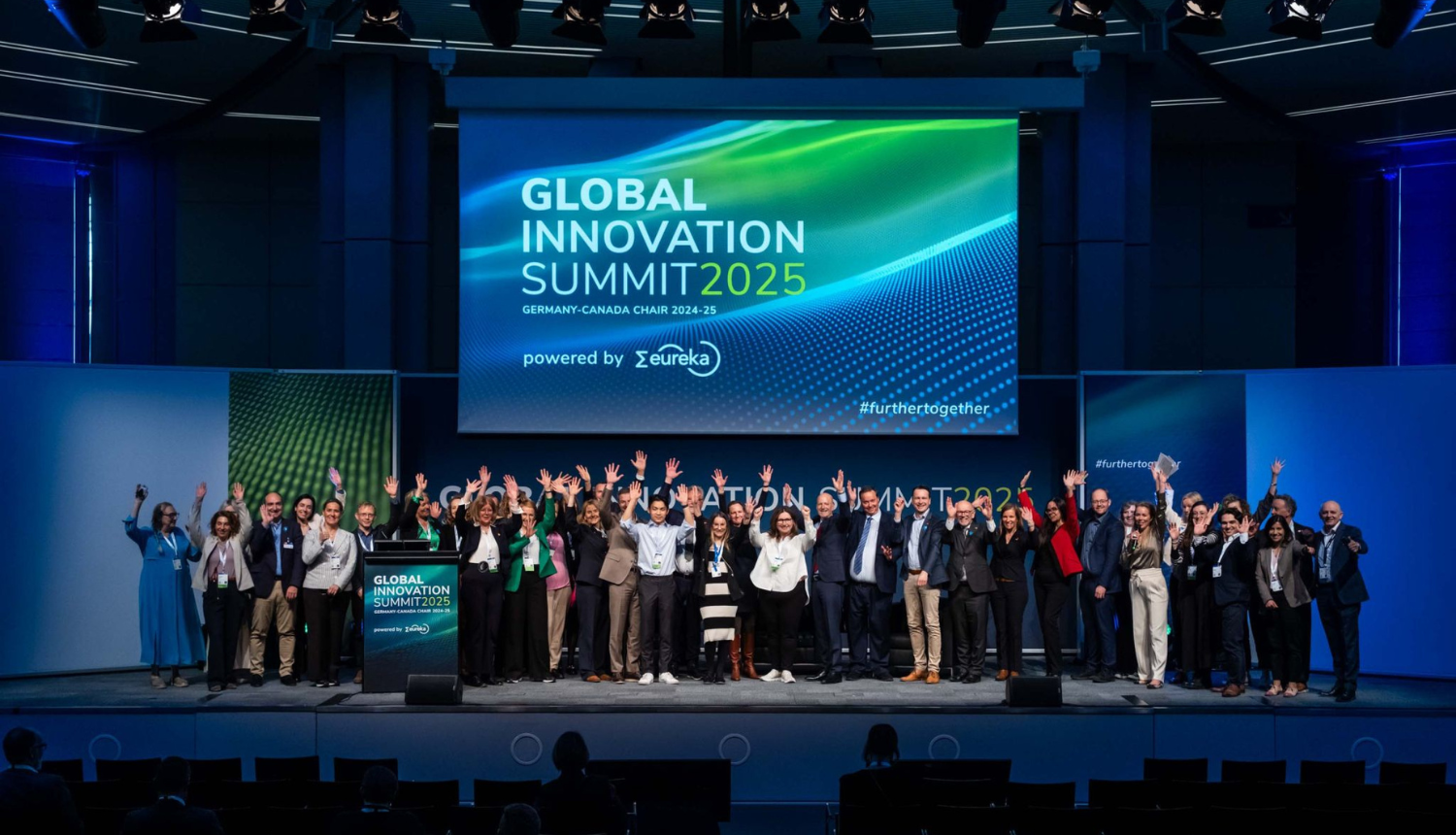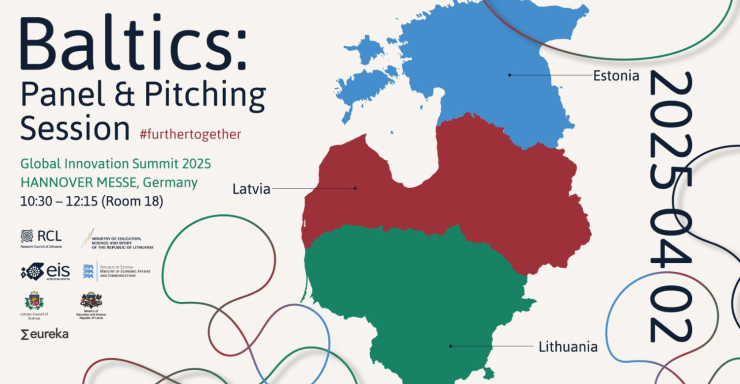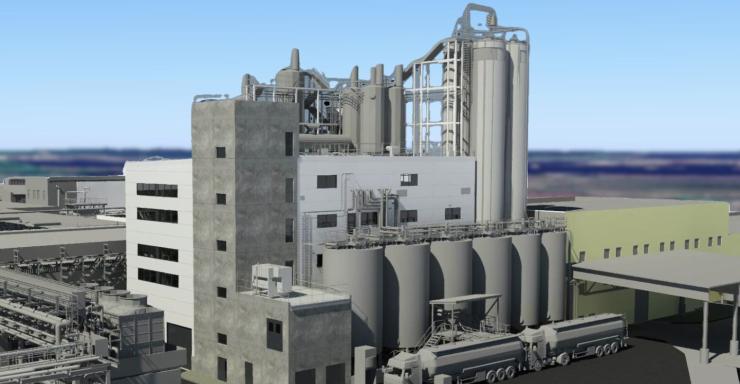The innovation landscape in the Baltics and Europe is evolving through strategic collaboration and sustainable initiatives. On April 1 - 2 in Hannover, Germany, the EUREKA-organised Global Innovation Summit 2025 took place – one of the most significant international events in the field of innovation and technology cooperation. The summit also focused on the innovation potential of Latvia, Estonia, and Lithuania, and their roles in the global research and technology development environment. During a Baltic States panel discussion, participants addressed issues such as regional competitiveness and the role of technology in Europe's security, economy, and sustainable development.
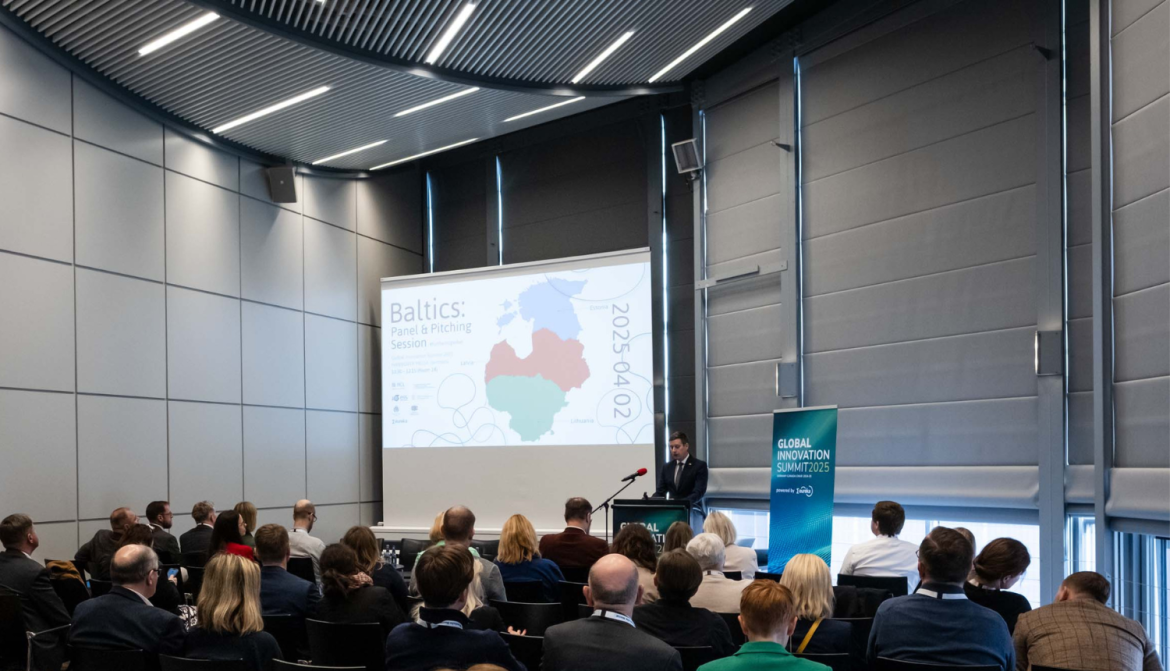
"The Baltic states are in an excellent position to support Europe's shift towards competitiveness and defence.
An open economy, operating within the EU single market, the availability of human resources, and researchers’ willingness to cooperate with international companies make the Baltic region a key player in shaping Europe's future," stated Aleksandrs M. Blūms, Counsellor for Research and Space Permanent Representation of the Republic of Latvia to the European Union, who represented Latvia in the panel discussion.
As reported, Latvia holds the presidency of the Baltic Council of Ministers in 2025, continuing efforts to strengthen regional cooperation. The Baltic countries are actively developing joint projects to promote entrepreneurship, regional development, and cross-border cooperation. Research plays a particularly important role in these processes, providing innovative and sustainable solutions. The panel discussion "Innovating the Future – A Focus on the Baltic Nations" brought together experts from Latvia, Lithuania, and Estonia to discuss innovation priorities and future cooperation opportunities, with a focus on high-level innovation trends and strengthening strategic partnerships in the European context.
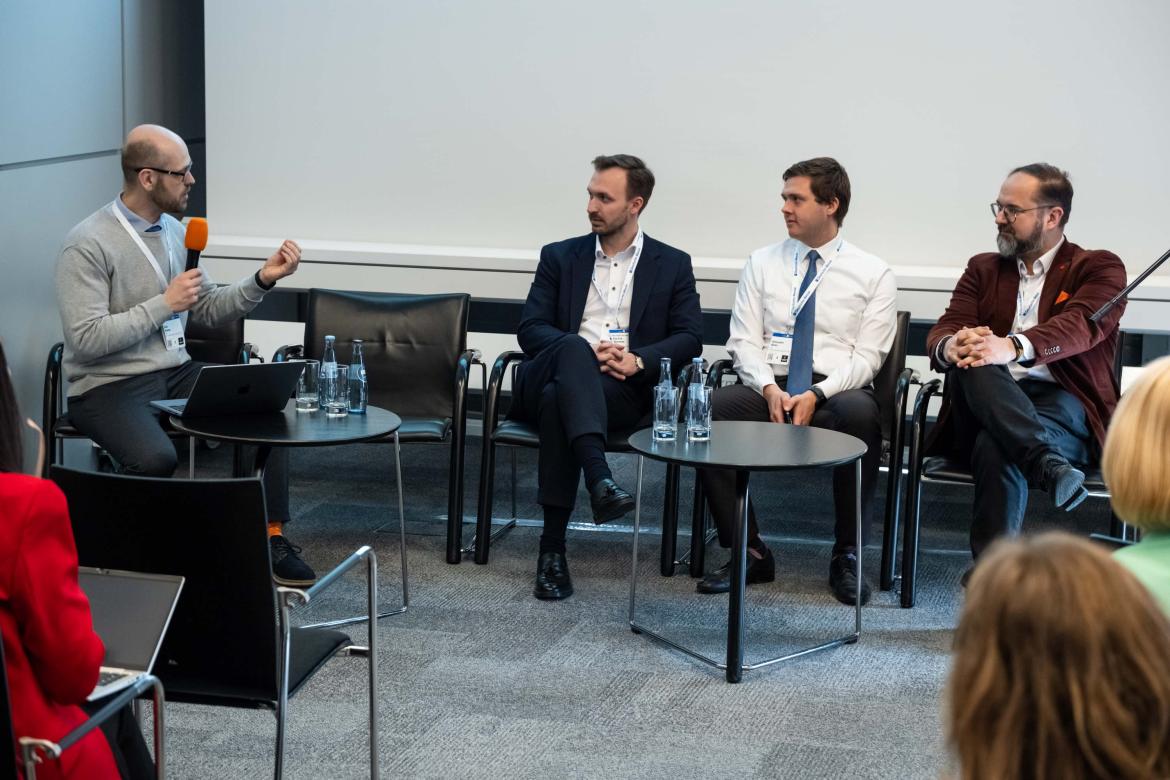
"Latvia has a strong scientific base with internationally recognised researchers and significant innovation potential. To fully unlock this potential, closer collaboration between science and industry is essential – it would foster the growth of innovative small and medium-sized enterprises and create new, competitive solutions.
Recognising our strengths and weaknesses, Latvian scientists and entrepreneurs must develop stronger cooperation with their counterparts in neighbouring countries. This will enhance not only the competitiveness of each Baltic state but also the visibility, development vision, and values of the region as a whole," emphasised Dr. sc. ing. Linda Vecbiškena, Latvia’s representative in the EUREKA High Level Group and Project Manager at the Department of Higher Education, Science and Innovation of the Ministry of Education and Science.
The Baltic states are becoming increasingly active in developing innovation and technology, boosting the region's competitiveness in the global market. Latvia, for example, offers an attractive environment for companies and research centres, where highly qualified STEM and IT specialists are generating new innovations. To maximise this potential, closer cooperation between scientists and industry is vital, fostering the development of new technologies and products.
The deep tech sector in the Baltic states is experiencing rapid growth, with startups in this field accounting for 20% of the total startup capitalization in the region, and investment in these companies continues to rise. According to recent data, the Baltics are the fastest-growing region in Europe in terms of deep tech company value. To support this growth, targeted collaboration between governments, entrepreneurs, and researchers is needed, along with new solutions that help businesses more effectively find and collaborate with scientists.
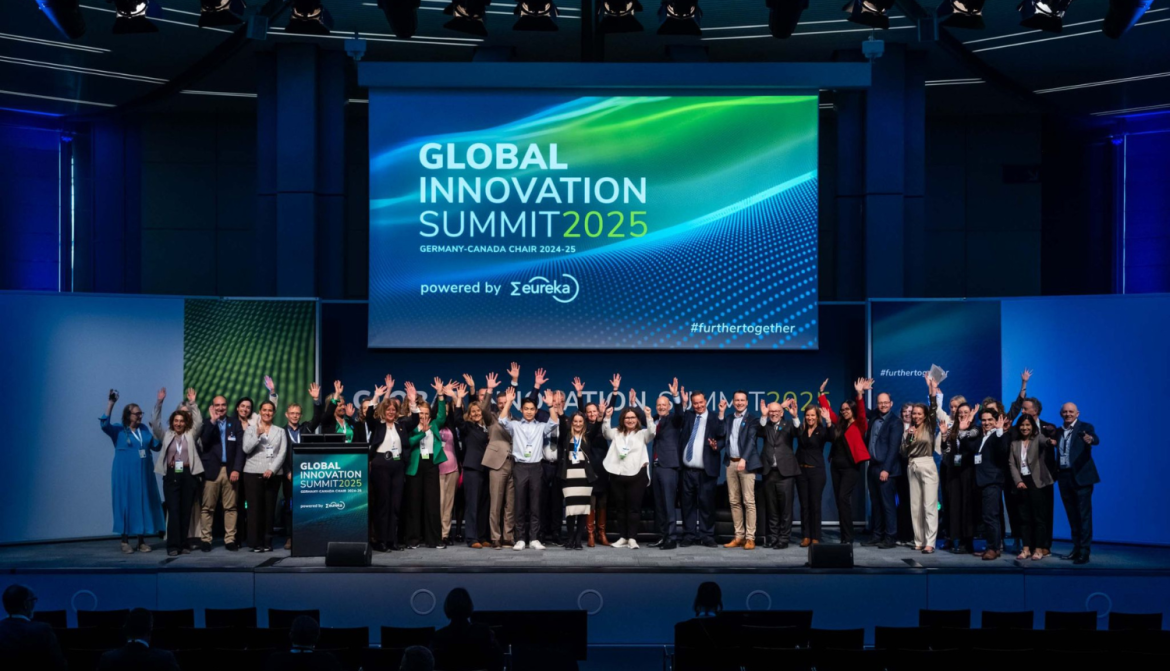
From May 4 - 6, 2026, the next EUREKA Global Innovation Summit will be held in Basel, Switzerland, offering Latvia an opportunity to participate even more actively in the international innovation ecosystem. The summit is a platform where Latvian researchers, entrepreneurs, and policymakers can showcase national achievements, establish new collaboration projects, and strengthen Latvia’s role in the European and global innovation space.
The panel discussion was attended by representatives of various organisations, underlining the importance of international cooperation and experience exchange in the development of science and innovation. Participants included representatives from the National Research Council of Canada, Germany’s Federal Ministry of Education and Research, DLR Project Management Agency, Netherlands Enterprise Agency (RVO), the EUREKA Association, Eurescom GmbH (which manages European R&D projects in telecommunications), the German-Baltic Chamber of Commerce, the European Nanoelectronics Association (AENEA), and others.
More information about EUREKA programmes is available online.
--
Organizers of the Baltic States panel discussion and informational sessions: EUREKA, Ministry of Education and Science of the Republic of Latvia, Latvian Council of Science, the Estonian Business and Innovation Agency, the Ministry of Economic Affairs and Communications of the Republic of Estonia, the Research Council of Lithuania, and the Ministry of Education, Science, and Sport of the Republic of Lithuania.
The participation of the Ministry of Education and Science of the Republic of Latvia and Latvian Council of Science representatives in the event is implemented within the framework of the ERDF project No. 1.1.1.1/1/24/I/001 "More Effective and Smarter Implementation and Management of Latvia’s Science Policy".
